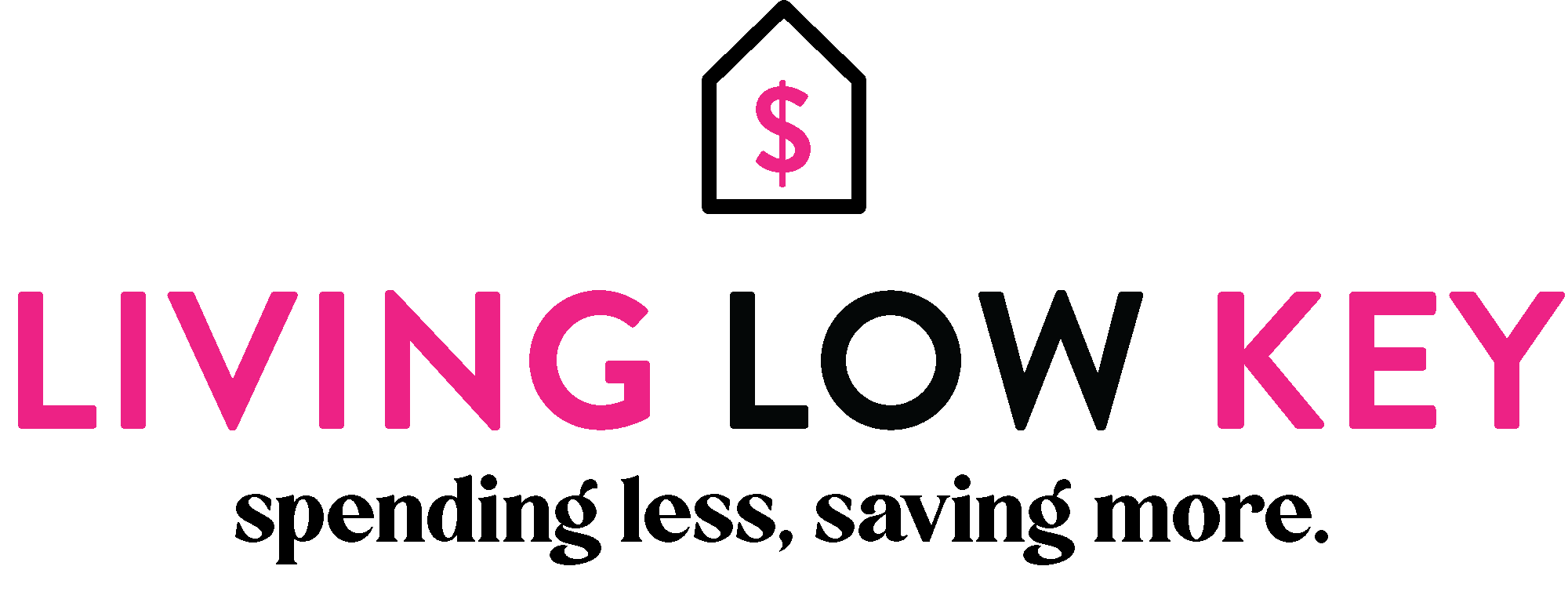When’s the last time you checked your credit score? If the answer is more than a year ago, you are making a mistake. How are you going to know if you have a good credit score or not??
Every one of us should be checking our credit score each year. Knowing what your credit score is and having a high number is extremely important if you ever need to buy a car or finance a house.
Having a good credit score makes applying for loans or credit cards really simple. However, if you have a bad credit score it’s going to make receiving financing harder and could cost you thousands of dollars in higher interest rates.

Related Articles that will help you save money:
- Retirement Planning: Grow A Million Dollar Nest Egg
- Create Better Money Habits By Kicking These Bad Ones
- 5 Steps We Took To Save $100,000 In 5 Years
- 30 Things To Do On A No-Spend Weekend
What’s A Good Credit Score

If you haven’t checked your credit score recently, you should do that before you go any further.
You can check your credit score for free here on Credit Sesame. There are a lot of different things you can do with Credit Sesame like checking your credit report, credit monitoring, identity theft protection and they can help you with other financial needs. If you haven’t looked into Credit Sesame yet, you should. It’s completely free and it only takes about three minutes to do.
We love Credit Sesame and highly recommend them!
If you have a good credit score great, but if you have a bad credit score don’t worry, we are going to help you bring it back up.
Now that you have checked your credit score with Credit Sesame, you are probably wondering what a credit score is and if you have a good one.
A credit score is 3 digit number that lenders will use to determine how likely you are to repay your debts. The higher the number, the more likely you are to repay your debts.
When you check your credit score you will probably notice that you have 3 different numbers. The reason for that is there are 3 main credit bureaus and they all calculate your credit score slightly differently. Your score will generally be in a range from 300 to 850.
Here are the tiers for how your credit score can be judged:
- Excellent Credit: 750+
- Good Credit: 700-749
- Fair Credit: 650-699
- Poor Credit: 600-649
- Bad Credit: Less Than 600
Seeing the scores above, where does your credit score fall? Do you have a good credit score?
If your credit score isn’t as good as you would like it we are going to show you how to bring it up to the excellent range. The thing you have to remember is that raising your credit score takes time and it won’t happen overnight.
Grab Your FREE Budget Binder Today!
Start saving more money and pay off your debt with this FREE Budget Binder
Ways To Improve Your Credit Score
Dispute Discrepancies On Your Credit Report
Under the Fair Credit Reporting Act, you are entitled to receiving your entire credit report for free, one time per year. You can go to annualcreditreport.com and it will pull your credit reports from Experian, Equifax, and TransUnion. Because your credit score is going to be based on what’s in the credit reports, it’s important to make sure it is accurate.
The Federal Trade Commission conducted a study in 2012 and found that 1 in 5 people have an error on their credit report. With your credit report from each company in hand, you should compare your credit reports side by side. If you see anything that looks odd you need to question it.
Things to look at include:
- Ensure all personal information is correct
- Any late payments listed that you know you paid on time
- Are all of your lines of credit being reported
- Are there any lines of credit or applications for credit you don’t recognize
- Any missed payments from years ago that are still showing up
If anything looks out of the ordinary to make sure you contact the credit reporting company via writing with what you believe to be incorrect. That will be the first step to disputing any issues on your credit report.
The second step will be to alert the company reporting your information that you don’t agree with the information.
Stop Making Late Payments – This Will Quickly Change A Good Credit Score To A Bad Credit Score
If you find yourself making late payments on your bills it’s going to hurt your credit. Just how much it hurts your credit score will be determined by how long overdue the payment is and if you have a history of making late payments. Missing a payment for 30 days could drop your credit score by up to 100 points!
If you find yourself in a late payment situation you need to get current on your bill. After you are current, you can try to call the company and ask if they will forgive the delinquency. Some credit card companies will be willing to work with you especially if there isn’t a history of being late.
If you know you are going to miss a payment before it happens. Try calling the company and asking if you can work out a payment plan that you will be able to stick to. They would rather get some money from you than none at all.
If you have trouble making payments on time there are a few steps I want you to take.
Step 1: Write down all of your bills and the due dates for each one.
Step 2: Get a calendar and put the bill name and amount owed on each day of the month that they are due. Post this calendar somewhere you will see it every day. You can also set up notifications on the calendar on your phone.
Step 3: Set up auto-draft or online payment schedules. Most of your bills should be able to be set up under an auto-draft of some sort. Make the payments automatic and take the stress out of remembering to pay them.
Pay Off Debt and Close Collection Accounts
One way to improve your credit score is to pay off your debt.
Paying off debt shows creditors that you are capable of being responsible with your money and they will give you a better credit score. If you have any collection accounts you have to pay those off as quickly as possible. Any accounts in
If you can’t totally pay off your debt, by keeping your balances low on the accounts you do have will also help. You might hear a lot about having multiple credit cards to get a good credit mix. Having the same amount of debt spread across multiple cards isn’t going to help you. Pay some of them off and focus on using a single card.
Whatever you do, don’t close any cards.
Create A Long History Of Paying Off Debt
When the credit bureaus run your credit report and generate your credit score they take into account how long your credit history is. If you have a short credit history there isn’t much you can do but wait it out. Keep any old credit card accounts open and make sure you don’t miss payments on them.
Are you in the “I’ve never had a credit card or any type of loan” group? If you are, you can always open a credit card to start building credit. One will do the trick to start out, you don’t need to open more than that. Make sure you pay them on time and start building towards a good credit score, not paying on time will only hurt you.
We have one credit card between the both of us!
We use it mostly for travel. As soon as we get home we go online and pay it off. We don’t spend more money then we have in our account.
Stop Applying For Credit Cards
We all get them, those annoying credit card offers in the mail or even airline credit card offers when you fly. The 10% savings or 50,000 airline miles sounds great but let me tell you, they aren’t worth it.
What you probably don’t realize is that each time you apply for a credit card a hard inquiry is pulled on your credit history. Hard inquiries hurt your credit score by a couple of points each time, whether you get approved or not. A hard inquiry on your credit will hurt your score for 12 months. It will remain on your report for 2 years.
To improve your credit score, simply avoid signing up for extra credit cards. The 15% savings on a pair of jeans isn’t going to outweigh the hit to your credit score.
Keep Credit Card Balances Less Than 30% Of The Credit Limit
If you have credit cards and you have a balance on them, make sure you keep that balance down. You should aim to keep your credit utilization below 30% or it’s going to hurt your credit score.
Even if you are able to pay your credit card bills on time each month, you are going to hurt your credit score if your balance is above 30% of your credit limit. One way to avoid this is to proactively pay down your credit card balances. If you can pay extra before the due date to get it below the 30% mark you can save your credit score.
If you find yourself consistently having credit utilization above 30% you can always ask your credit card company to raise the limits on your card. I would only do this as a last resort because if you aren’t careful you might find yourself spending more knowing you have a higher limit.
Bankruptcy, Foreclosure and Short Sales
Sometimes things just don’t go your way.
Whether it’s the loss of a job or some other circumstances having a bankruptcy, foreclosure on your house or even a short sale will hurt your credit score. In these instances, you have to do everything in your power to bring your credit score back up. Your credit score will take a big hit but if you want a good credit score again you can follow some of the tips above.
How Long Do Things Stay On Your Credit Report
We’ve talked a lot about things that affect your credit score and how you can start working towards a good credit score. Let’s quickly go over how long some of these things that hurt your credit score will stay on your credit report. It’s important to know what hurts your credit score. It’s equally important to know how long it will hurt your score.
Inquiries: While soft inquiries don’t affect your credit score, hard inquiries do. A hard inquiry occurs when you apply for a new line of credit whether it’s a loan or credit card. Hard inquiries will affect your credit score for 12 months but will stay on your credit report for 2 years.
Late Payments: When you miss a payment on a bill it will ding your credit score. Late payments will show on your credit report for up to 7 years.
Charged Off Accounts: This occurs when a creditor writes off your account as a loss. This doesn’t mean you don’t still owe them money, it just means they assume they won’t ever see the money. These stay on your credit report for up to 7 years!
Tax Lien: If you fail to pay your taxes the government can put a tax lien on you. Even if you pay the lien off, it can stick on your credit report for up to 7 years.
Collection Accounts: If you are inconsistent with paying a bill and the company sends it to a collection agency, that’s a collection account. These can stay on your record for 7 years plus 180 days from the time you went delinquent on the bill.
Foreclosure or Short Sale: When your home goes into foreclosure or you have a short sale, it will show on your credit report. These will stay on there for up to 7 years.
Bankruptcy: When you file for bankruptcy it’s going to hit your credit score
The bottom line in all of this is to make sure that you check your credit score regularly. Using Credit Sesame is a fast, easy and totally free way to check your credit score. I highly recommend checking it at least once per year.
If you check your score regularly you will catch any issues before they spiral out of control. The key to getting back to a good credit score is paying bills on time and minimizing your credit card use.
If you need help organizing your finances to make this happen you should check out our Budget Binder. It’s totally free but it will help you organize your finances and the Monthly Bill Tracker will be extremely helpful.
What other things can hurt your good credit score and what should we watch out for?
[disclosure]
Grab Your FREE Printable Budget Binder






 Making Sense of Affiliate Marketing Review
Making Sense of Affiliate Marketing Review